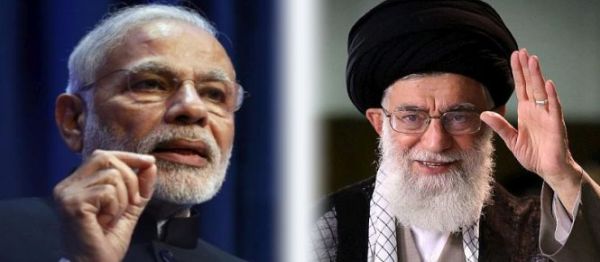Recently the Supreme Leader of Iran, Ayatollah Ali Khamenei took to social media to criticize India on its treatment of minorities, the comments are rather surprising from a nation with a shocking human rights record, where inhuman treatment of minorities is a way of life.
In a post on X (formerly twitter) Iran’s leader Khamenei said, “The enemies of Islam have always tried to make us indifferent with regard to our shared identity as an Islamic Ummah. We cannot consider ourselves to be Muslims if we are oblivious to the suffering that a Muslim is enduring in #Myanmar, #Gaza, #India, or any other place.”
This is a shocking statement, as India is one of the most diverse and tolerant countries in the world, a country that has welcomed refugees for centuries, not least from Iran itself. The comments prove that either the Supreme leader of Iran is ill informed or there is actual malice to meddle in the internal affairs of foreign nations.
India’s response
Meanwhile, India has condemned Khamenei’s remarks in the strongest terms, calling them “misinformed and unacceptable.” India has also urged Iran to reflect on its own track record before commenting on India. Aside from its mistreatment of minorities, the radical nation is always in the news for its dismal human rights record, brutal public executions, and the inhuman treatment of women.
Iran is currently embroiled in a confrontation with Israel since October of last year, after Iran backed Hamas launched a series of terror attacks on Israel. Since then, Israel has carried out a relentless campaign against Hamas. It has also proceeded to launch attacks on Iran backed outfits in Iraq and Lebanon. Israel and Iran have exchanged missile attacks as well. Despite all of that, Iran continues to back terror outfits like Hamas and Hezbollah, and now it seems to be inciting muslims in far off countries like Myanmar and India too.
Iran’s treatment of its Minorities
Iran has a shocking record on its treatment of its minorities. The well known persecution of Zoroastrianism was so extreme that the native religion is practically non existent in its homeland Iran. Zoroastrians from Iran found refuge in countries like India, while back home their religion and culture was decimated by the radical Islamic regime.
The persecution of the Kurds and the Ahwazi Arab dissidents in Iran is well documented, with a number of their activists arrested, imprisoned, tortured, and forced to give false confessions. Iran has even launched strikes and military attacks on the ethnic minorities. The Balochis are another ethnic group that have their land stolen by the Iranian regime. Balochistan of Iran remains as the most underdeveloped, desolate, and poorest region of the country.
It is crucial to note that the Zoroastrians, the Kurds, the Ahwazi Arabs and most of the Balochis do not follow Shi’a Islam. The Iranian regime is so intolerant that it is not ready to even accommodate muslims of other denominations, let alone tolerate other religions.
Impact on Iran-India Relations
The recent comments from Khamenei seem more strange as India has been extremely benevolent and tolerant of Shi’a Muslims. They have found a safe haven in India when right next door the persecution of Shia’s in Pakistan is literally state sponsored. Yet Iran has seldom bothered to take up or fight for the rights of the persecuted Shia’s of Pakistan.
This is also not the first time an Iranian leader has criticized India over its treatment of Muslims. In 2019, after India repealed Article 370 in Kashmir, Khamenei condemned the move and expressed concern for the Muslim population in the region. He made similar remarks after the 2020 Delhi riots, where Khamenei blamed it on “extremist Hindus.”
While Iran and India have enjoyed cordial relations overall, this constant meddling in the internal affairs of India will sour the relations between the two countries. Iran is a heavily sanctioned and ostracized state. It remains in the crosshairs of the USA and is now in confrontation with the powerhouse Israel. If it continues with such statements, Iran will lose one of the few nations with which it shares good relations. And sooner or later there is bound to be a strong response from the Indian state, which will not sit back and watch a foreign nation meddling in its internal affairs.
